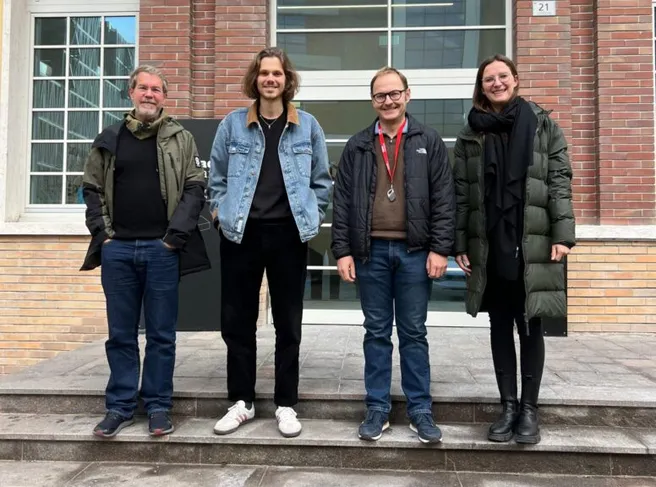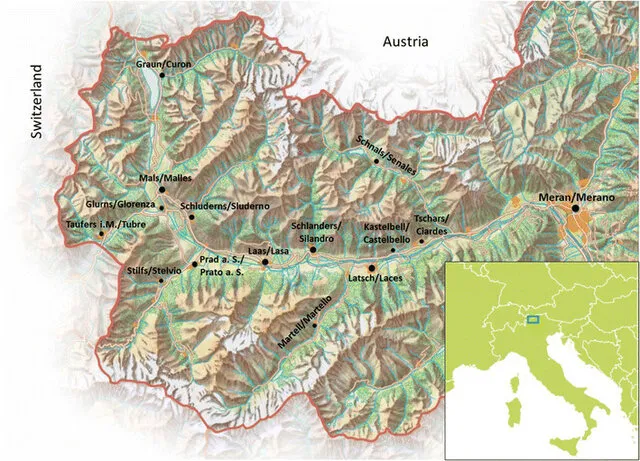The CHRIS study (Cooperative Health Research in South Tyrol) is a cohort study and long-term study in the Vinschgau Valley, in which 13,393 people of legal age were interviewed about their living conditions, medical history, underwent medical examinations, and genetic data was collected. The first phase began in 2011 and the second began in 2019. The aim of the study is to conduct detailed research into common widespread diseases, with a focus on neurological diseases, cardiovascular diseases and metabolic diseases. More information on the CHRIS data is available: https://chris.eurac.edu
The study is investigating the development of diseases, including the risk factors that favour their development. It also aims to determine the role played by genes and environmental influences to which people are exposed, as well as their lifestyle and social factors. Based on the results of the study, measures and strategies will be developed to improve the prevention, early detection and treatment of diseases. DyHealthNet is one of the research projects that contributes to it!
Our project aims to leverage the heterogeneous data from population cohort studies, such as the CHRIS study, via flexible data analysis techniques using multi-level network medicine. We will enable mining of context-specific pathomechanisms that go beyond the static associations found in publicly available data sources. This allows researchers to continuously develop and investigate novel questions without a significant investment in data curation and analysis. Our DyHealthNet platform will thus serve as a blueprint for explorative data analysis of population cohorts.
After some months of careful preparation, since November 2024 the doctoral students involved in the project have finally received the status of visiting researchers at the corresponding center: EURAC in Bolzano. This includes the data access framework necessary for a successful project outcome, also legally speaking.
What is special about the CHRIS Study? A very high participation of the target population: almost 50% of the persons living in the Vinschgau Valley take part and this over decades!
Stay up to date: https://www.dyhealthnet.ai

